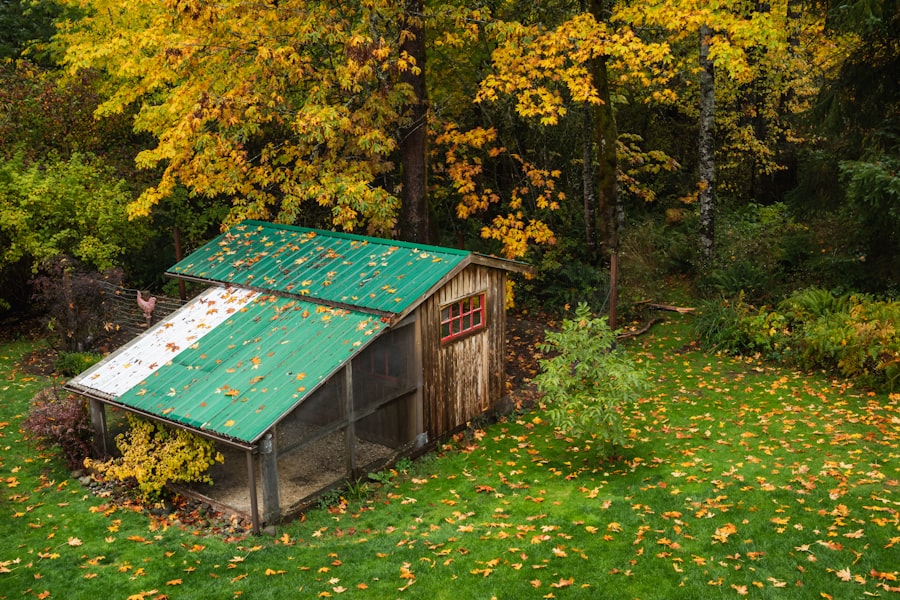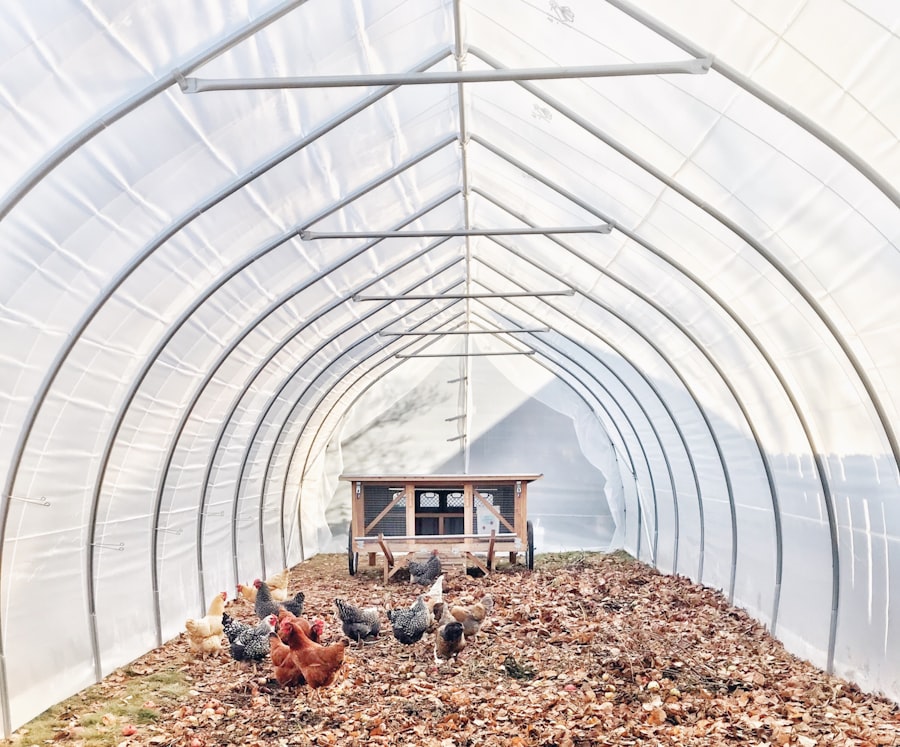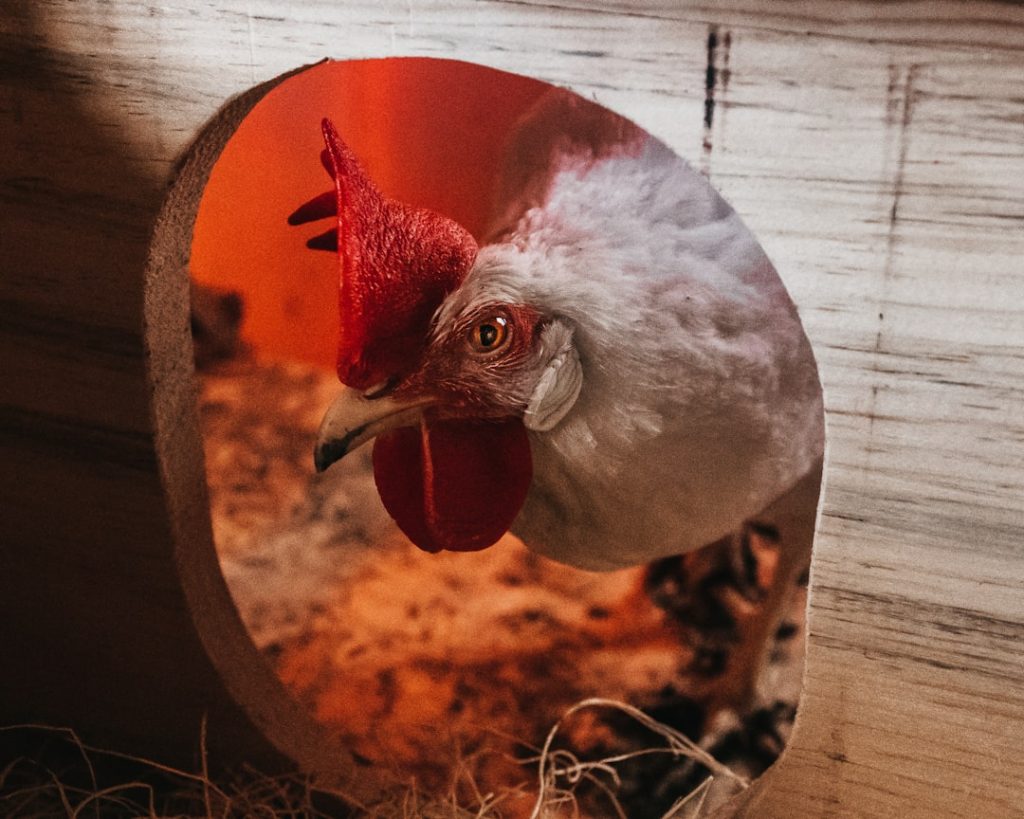When selecting a chicken breed for a backyard flock, several factors should be considered. Climate is a crucial aspect, as some breeds are better adapted to cold weather, while others thrive in warmer conditions. The intended purpose of the flock is also important, whether it’s for egg production, meat production, or companionship.
Breeds like Leghorns and Rhode Island Reds are known for high egg production, while Cornish Cross and Freedom Rangers are popular for meat production. Temperament is another significant factor, as breeds can vary from docile and friendly to skittish or aggressive. It’s essential to choose a breed that aligns with the owner’s preferences and lifestyle.
The size of the birds should be considered, especially for those with limited space. Bantam breeds, such as Silkies or Sebrights, are suitable for smaller areas, while larger breeds like Orpingtons or Wyandottes require more space. Some breeds, like Polish or Frizzle chickens, are known for their unique and attractive plumage, which may appeal to those interested in aesthetics.
Ultimately, the ideal breed for a backyard flock depends on the specific needs and preferences of the owner. Thorough research of different breeds is recommended to make an informed decision that best suits the individual’s circumstances.
Table of Contents
- 1 Housing and Coop Requirements
- 2 Feeding and Nutrition
- 3 Health and Veterinary Care
- 4 Egg Production and Collection
- 5 Managing Chicken Behavior
- 6 Predation and Security Measures
- 7 FAQs
- 7.1 What are the benefits of keeping chickens?
- 7.2 What do chickens need in their living environment?
- 7.3 What do chickens eat?
- 7.4 How do you keep chickens healthy?
- 7.5 What are some common chicken breeds for beginners?
- 7.6 How do you protect chickens from predators?
- 7.7 How do you handle chicken waste?
Key Takeaways
- Consider the climate, space, and purpose of raising chickens when choosing the right breed for your needs
- Provide a secure and spacious coop with proper ventilation, nesting boxes, and roosting bars for your chickens
- Ensure a balanced diet for your chickens with a mix of commercial feed, grains, greens, and access to clean water
- Regularly monitor the health of your chickens and seek veterinary care when necessary to prevent and treat illnesses
- Collect eggs daily, provide clean nesting areas, and implement proper storage to maintain egg quality
- Understand and manage chicken behavior through proper handling, socialization, and environmental enrichment
- Implement security measures such as fencing, predator-proofing the coop, and using deterrents to protect your chickens from predators
Housing and Coop Requirements
Coop Size and Space Requirements
The size of your coop will depend on the number of chickens in your flock, as well as the size of the breed. As a general rule of thumb, each chicken should have at least 2-3 square feet of space inside the coop, and 8-10 square feet of outdoor space. It’s important to provide enough space to prevent overcrowding and reduce the risk of aggression and disease.
Ventilation and Temperature Regulation
Your coop should be well-ventilated to prevent moisture buildup and ammonia levels from rising. Proper ventilation will also help regulate temperature and prevent heat stress during the summer months.
Security and Predator Protection
In addition to size and ventilation, it’s important to consider the security of your coop. Predators such as raccoons, foxes, and birds of prey pose a threat to backyard flocks, so it’s essential to have a secure coop that is predator-proof. This may include burying hardware cloth around the perimeter of the coop to prevent digging, as well as using locks and latches on doors and windows to prevent entry.
Additional Coop Considerations
It’s also important to provide roosting bars and nesting boxes inside the coop to give your chickens a place to rest and lay eggs. Finally, you’ll want to consider the location of your coop. It should be situated in an area that is well-drained and provides protection from wind and extreme weather. Taking the time to set up a proper coop will ensure that your chickens have a safe and comfortable living environment.
Feeding and Nutrition

Feeding and nutrition are crucial aspects of raising a healthy and productive backyard flock. Chickens require a balanced diet that includes protein, carbohydrates, fats, vitamins, and minerals. A good quality commercial feed is a convenient option that provides all the essential nutrients in one package.
However, it’s important to choose a feed that is appropriate for the age and purpose of your chickens. For example, there are different feeds formulated for chicks, layers, and broilers. Additionally, some feeds are specifically designed for egg production or meat production.
It’s important to read the labels carefully and choose a feed that meets the specific needs of your flock. In addition to commercial feed, chickens can also benefit from supplemental treats and foraging opportunities. Fresh fruits and vegetables, mealworms, and scratch grains can be given as treats in moderation to provide variety and enrichment.
Chickens also enjoy foraging for insects and plants in a free-range environment, which can contribute to their overall health and well-being. It’s important to provide access to clean water at all times, as dehydration can quickly become a serious issue for chickens. Additionally, it’s important to monitor your chickens’ food intake and adjust their diet as needed based on their activity level, age, and overall health.
By providing a balanced diet and monitoring their nutritional needs, you can ensure that your backyard flock remains healthy and productive.
Health and Veterinary Care
Maintaining the health of your backyard flock is essential for their well-being and productivity. Regular health checks and preventative care can help identify and address any potential issues before they become serious problems. It’s important to observe your chickens daily for any signs of illness or injury, such as changes in behavior, appetite, or appearance.
Common health issues in chickens include respiratory infections, parasites, and reproductive disorders. If you notice any concerning symptoms, it’s important to consult with a poultry veterinarian who can provide guidance on diagnosis and treatment options. In addition to regular health checks, preventative care measures can help keep your flock healthy.
This may include vaccination against common diseases such as Marek’s disease or Newcastle disease, as well as parasite control through regular cleaning and disinfection of the coop. It’s also important to practice good biosecurity measures to prevent the spread of disease within your flock. This may include quarantining new birds before introducing them to your existing flock, as well as limiting exposure to wild birds and other potential sources of infection.
Egg Production and Collection
For many backyard chicken keepers, egg production is one of the main reasons for raising chickens. To ensure optimal egg production, it’s important to provide your hens with a balanced diet, plenty of clean water, and a comfortable living environment. Most laying breeds will start laying eggs around 5-6 months of age, although this can vary depending on breed and individual factors.
It’s important to provide nesting boxes inside the coop where hens can lay their eggs in a quiet and private space. Once your hens start laying eggs, it’s important to collect them regularly to prevent breakage and spoilage. Eggs should be collected at least once a day, preferably in the morning when they are still fresh and clean.
It’s important to handle eggs gently to prevent cracking or damaging the protective bloom on the shell. Eggs should be stored in a cool place away from direct sunlight until they are ready to be consumed.
Managing Chicken Behavior

Establishing a Harmonious Flock
Chickens have their own social structure and communication methods that can influence their well-being and productivity. It’s essential to provide enough space for chickens to establish their pecking order without overcrowding or aggression.
Reducing Stress and Boredom
Additionally, providing enrichment such as perches, dust baths, and access to outdoor foraging can help reduce boredom and stress. Chickens are also sensitive to changes in their environment or routine, so it’s important to handle them gently and avoid sudden disruptions whenever possible.
Building Trust and Monitoring Health
Regular handling and positive interactions with humans can help tame chickens and make them more comfortable with human presence. It’s also important to observe their behavior regularly for any signs of stress or illness, as these can impact their overall well-being.
Predation and Security Measures
Protecting your backyard flock from predators is a crucial aspect of chicken keeping. Common predators such as raccoons, foxes, dogs, and birds of prey pose a threat to chickens, so it’s important to implement security measures to keep them safe. This may include using hardware cloth or welded wire fencing around the perimeter of the coop and outdoor run to prevent digging or entry by predators.
Additionally, it’s important to secure all doors and windows with locks or latches that are predator-proof. Regularly inspecting the coop for any signs of wear or damage can help identify potential weak points that need reinforcement. It’s also important to consider using motion-activated lights or alarms as deterrents for nocturnal predators.
In addition to physical security measures, it’s important to supervise free-range time for chickens during daylight hours when predators are less active. Providing adequate shelter and hiding spots in the outdoor run can also help chickens feel safe from potential threats. In conclusion, raising a backyard flock of chickens can be a rewarding experience when done with careful consideration of breed selection, housing requirements, nutrition, health care, egg production management, behavior management, and predator protection measures.
By taking the time to research and implement best practices in each of these areas, you can ensure that your chickens lead happy, healthy lives while providing you with fresh eggs or meat as desired.
If you’re interested in learning more about keeping chickens, you may also want to check out this article on large chicken coop ideas from Poultry Wizard. It provides helpful tips and inspiration for creating a comfortable and spacious living environment for your feathered friends.
FAQs
What are the benefits of keeping chickens?
Keeping chickens can provide a sustainable source of fresh eggs, natural pest control in the garden, and a source of organic fertilizer for the soil.
What do chickens need in their living environment?
Chickens need a secure coop for shelter, nesting boxes for laying eggs, access to fresh water, and a secure outdoor area for foraging and exercise.
What do chickens eat?
Chickens require a balanced diet of commercial chicken feed, supplemented with kitchen scraps, grains, and greens. They also need access to grit for digestion.
How do you keep chickens healthy?
Keeping chickens healthy involves providing a clean living environment, regular access to fresh water, a balanced diet, and regular health checks for signs of illness or parasites.
What are some common chicken breeds for beginners?
Common chicken breeds for beginners include Rhode Island Reds, Plymouth Rocks, and Sussex. These breeds are known for their hardiness, good egg production, and friendly temperament.
How do you protect chickens from predators?
To protect chickens from predators, it’s important to secure the coop with strong wire mesh, lock the coop at night, and use motion-activated lights or alarms to deter predators.
How do you handle chicken waste?
Chicken waste can be composted to create organic fertilizer for the garden. It’s important to regularly clean the coop and dispose of waste in a responsible manner to prevent odors and pests.
Meet Walter, the feathered-friend fanatic of Florida! Nestled in the sunshine state, Walter struts through life with his feathered companions, clucking his way to happiness. With a coop that’s fancier than a five-star hotel, he’s the Don Juan of the chicken world. When he’s not teaching his hens to do the cha-cha, you’ll find him in a heated debate with his prized rooster, Sir Clucks-a-Lot. Walter’s poultry passion is no yolk; he’s the sunny-side-up guy you never knew you needed in your flock of friends!







